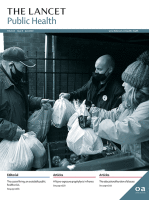Background
Children in care face adverse health outcomes throughout their life course compared with their peers. In England, over the past decade, the stark rise in the number of cared-for children has coincided with rising child poverty, a key risk factor for children entering care. The authors aimed to assess the contribution of recent trends in child poverty to trends in care entry.
Methods
In this longitudinal, ecological study of 147 local authorities in England, the authors linked data from the Department for Work and Pensions and HM Revenue & Customs on the proportion of children younger than 16 years living in families with income less than 60% of the contemporary national median income, before housing costs, with Department for Education data on rates of children younger than 16 years entering care. Using within-between regression models, and controlling for employment trends, the authors estimated the association of changing child poverty rates with changing care entry rates within different areas. Our primary outcome was the annual rate of children younger than 16 years starting to be looked after by local authorities in England.
Findings
Between 2015 and 2020, controlling for employment rates, a 1 percentage point increase in child poverty was associated with an additional five children entering care per 100 000 children (95% CI 2–8). The authors estimate that, over the study period, 8·1% of the total number of children under the age of 16 entering care (5·0–11·3) were linked to rising child poverty, equivalent to 10 351 (6447–14 567) additional children.
Interpretation
The authors report evidence that rising child poverty rates might be contributing to an increase in children entering care. Children's exposure to poverty creates and compounds adversity, driving poor health and social outcomes in later life. National anti-poverty policies are key to tackling adverse trends in children's care entry in England.

